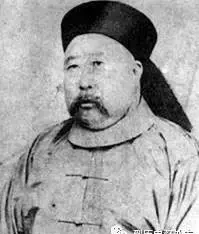The Wu Wei Army was the last family foundation of the late Qing government, this contingent was formed by Rong Lu, supported by Cixi, and was divided into the five armies of the left and right, except for the newly formed Central Army, the four armies of the front and rear left and right were all reorganized, namely the Wuyi Army, the Gan Army, the Yi Army, and the Newly Built Army, and the four armies were respectively commanded by Nie Shicheng, Dong Fuxiang, Song Qing, and Yuan Shikai. [Deep in History] This issue gives you an interpretation of some of the delicate relationships between these four leaders.
From the perspective of age, in 1899, Nie Shicheng was 63 years old, Dong Fuxiang was 59 years old, Song Qing was 79 years old, Yuan Shikai was 40 years old, Song Qing was the oldest, Yuan Shikai was the youngest, and the younger was not a star and a half, nearly 40 years younger than the longest Song Qing, and 19 years younger than the younger Dong Fuxiang.

Figure 1: Nie Shicheng
Yuan Shikai's young age is on the one hand, and his juniority is another. As early as 1861, Song Qing was already a general soldier, when Yuan Shikai was only two years old. Nie Shicheng became the chief soldier in 1868, and Dong Fuxiang became the chief soldier in 1878. In 1878, Yuan Shikai had not yet entered the army.
Figure 2: Song Qing
There was, of course, a reason why Yuan Shikai, who was young and shallow, was able to lead his new army into the strongest army at that time, because his new army was more in line with the original intention of the formation of the armed guard, more Western-style, and the equipment, training and even personnel salaries were stronger than the other three armies. Both the Wuyi Army and the Yi Army experienced the Sino-Japanese War and were the two most prominent teams in the Sino-Japanese War; after the Sino-Japanese War, they were reorganized and their equipment was completely Western-style. Only the newly transferred Gan army from the northwest was relatively backward.
From the source point of view, Nie Shicheng, the commander of the Wuyi Army, Song Qing, the commander of the Yi Army, and Yuan Shikai's uncle Yuan Jiasan were all related, both of whom had been under Yuan Jiasan. When Song Qing first led the army, because Yuan Jiasan of the Anhui military admired him very much, he was promoted many times, and with Song's military achievements, he was promoted to the rank of chief soldier and formed the Yi Army. Nie Shicheng, on the other hand, was thrown into the Luzhou military camp under Yuan Jia's three accounts as soon as he entered the military camp. Song Qing and Nie Shicheng originated from the Huai Army, Dong Xiangfu's Gan Army originated from the Xiang Army, and Yuan Shikai's new army was also based on the Huai Army at the beginning.
Figure 3: Yuan Shikai
From the attitude towards the Boxers, look at their positions and views. There were three ways to deal with the question of whether or not to suppress the Boxers, and the final situation was also different.
Let's look at the processing first. Yuan Shikai, the most new faction, actively advocated annihilation, and after he became the governor of Shandong, under his suppression, the Boxers in Shandong scattered. Song Qing and Nie Shicheng, who were fulfilling their duties as soldiers, were relatively neutral, and in the early stages, they had suppressed the Boxers under the will of the imperial court, and had a vendetta against the Boxers. Later, when the Qing court explicitly requested the support of the Boxers, the Wuyi Army, the Yi Army and the Boxers also clashed. The conservative Dong Fuxiang was relatively tolerant of the Boxers because of his proximity to the conservative forces of the Qing court, and even cooperated with the Boxers.
Figure 4: Dong Fuxiang
Look at the situation in the later stages. While Nie Shicheng's Wu Yi army was guarding Tianjin, his family was abducted by the Boxers, and finally died in a sad death in the battle to defend Tianjin. Like the Yi army in the defense of Tianjin, it was trapped before and after, facing the Eight-Nation Alliance in the front and dealing with the Boxers in the back. Dong Fuxiang's Gan army was first transferred to the capital, and together with the Boxers besieged Dongjiaomin Lane for two months without success. In contrast, Yuan Shikai was in the best position, and under his iron fist, the Boxers in Shandong basically disappeared, and they were basically not disturbed by the Boxers in the later period.
The introduction of the relationship between the four commanders of the Wu Right Army in this issue is here, and in the next issue, we pay attention to the Wu Right Army in the Gengzi Rebellion, welcome to pay attention!